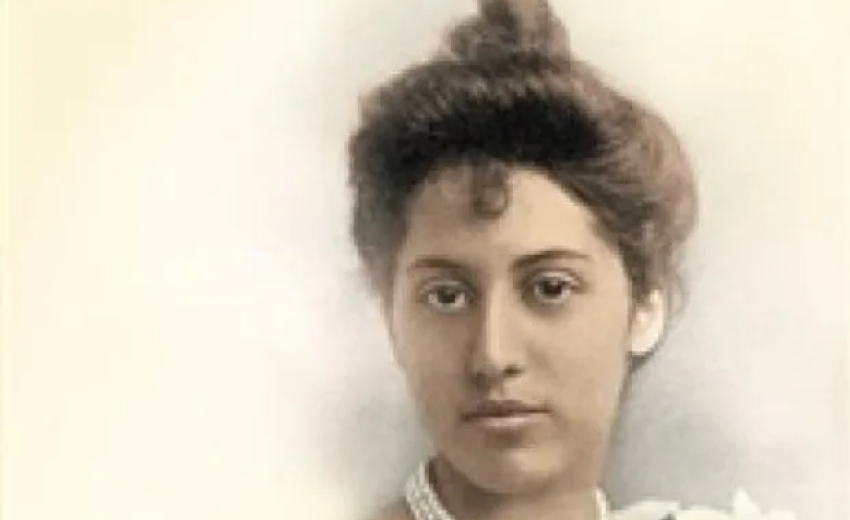Sophia had private teachers and went to fancy parties for young women.
The daughter of a separated Indian royal family lived in London in the late 1800s and early 1900s. She became a revolutionary while still following social rules.
BBC political journalist Anita Anand, tells the interesting story of Princess Sophia Duleep Singh. Descendant of Sikh royalty (daughter of Maharaja Duleep Singh and granddaughter of Maharaja Ranjit Singh), who defied expectations. Queen Victoria's goddaughter, she became a pioneering suffragette. With unwavering courage, she marched alongside Emmeline Pankhurst, refused to pay taxes, and even staged a dramatic protest by throwing herself in front of Prime Minister Asquith's car – all in the fight for women's suffrage.
Sophia lived in exile on a country estate in Suffolk, England. She later became a suffragette in London. She also visited her family's home country. Anand describes how Sophia changed from a society girl to a revolutionary. She also talks about Sophia's father, who spent most of his time being angry at the British and making weak plans against them.
Sophia had private teachers and went to fancy parties for young women. She used to be shy in front of cameras. But later, she liked to show off. She combined her passions for high fashion and dog-breeding by striking playful poses for newspaper photographers. On a trip back to northwestern India aboard the SS Barbarossa, a ship built for comfort, Sophia made sure to follow proper etiquette at the captain's table and avoid the more unpleasant guests.
But more than anything, she was devoted to her dogs. She refused to consider putting them in steerage with her maid, insisting she was the best one to care for them. She fed them fine cuts of meat and even gave them the occasional nip of brandy.
From pampered princess to champion for women's rights,Sophia’s transformation was fueled by a tumultuous family history. Her sister Bamba's thwarted dream of becoming a doctor ignited the spark. Bamba, a spirited woman herself, had secured a place at Northwestern University to study medicine, a prospect both fascinating and unsettling for many. Anand writes, "Despite some universities admitting women, the idea of female doctors was distasteful to many Americans, mirroring similar sentiments in Britain, seen as an affront to the natural order." Sadly, the offer was withdrawn, leaving both Bamba and her older sister Catherine deeply discouraged.
Her father,Maharajah Duleep Singh’s character shows how Indian nobles related to the British Empire. Duleep's mother was imprisoned for not accepting British rule. After changing from Sikhism to Christianity, Duleep was sent to England because Queen Victoria wanted to meet him. She had heard he was handsome and well-mannered. When she met him, she was very impressed. She thought he was very good-looking, spoke English well, and had nice manners. She felt sorry for Indian princes who lost their power.
Their relationship got worse over time. Duleep got bored with marriage and started gambling, partying, and drinking too much. He stopped caring for his family and didn't pay their debts. His children were left alone and poor, living in a run-down house. People gossiped about their bad luck. Duleep spent time with different women in Paris. When his wife died, he sent a short message to his oldest son saying he was sad and would write more later.
The government was more worried about Duleep meeting with Irish rebels than his bad behaviour. Duleep blamed the British for his problems and liked people who also disliked the British. Anand explains the strange relationship between the Queen and this family. She had spies following Duleep and wouldn't let him come back to India or visit certain places. But she also gave lots of gifts to her favourite goddaughter and worried about her future.
As Sophia got older, she became involved in politics and joined the suffragettes. This part of the book is less exotic and focuses more on the suffragette movement. The author talks about how the police hurt the protesters and how the government tried to protect the police. When two women died from their injuries, the young politician Winston Churchill refused to investigate.
Anand is good at telling the story of someone who isn't famous in the suffragette movement. Despite her passionate activism, Sophia remained an outsider within the suffragette movement. Unlike her peers, she was never imprisoned, which denied her the iconic hunger strike and a lasting place in history. Ironically, even a dramatic protest like throwing herself at the Prime Minister's car couldn't get her arrested. Anand reveals the stark reality: class privilege protected Sophia from the harsh consequences faced by many other suffragettes. This paradox highlights the complex social dynamics within the fight for women's rights.
*Based on an article by John Kampfner published in youtube.com on 11th January 2015
